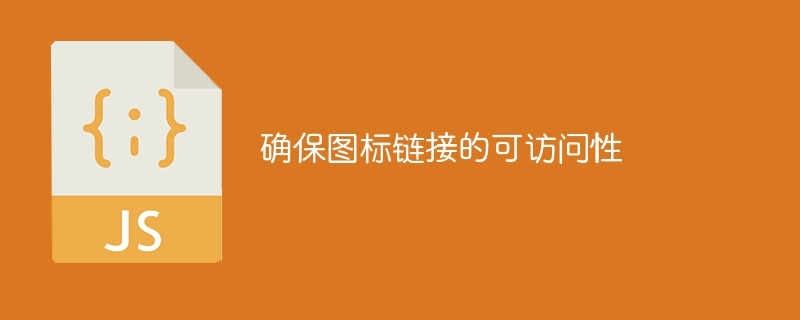
...通过一个小的客户端脚本自动实现
在此博客中,我逐渐告别图标字体,转而使用 svg 文件,我更喜欢使用背景图像进行集成,以保持灵活性。
在修改过程中,我注意到虽然我有时提供了带有标题的纯图标链接,但这些在可访问性方面并没有发挥任何作用。依赖屏幕阅读器的人还无法识别这些链接是什么。
有两种方法可以改变这个:aria-label 或添加文本并使其不可见。前者基本上只是一个拐杖,甚至没有得到所有浏览器的完全支持,因此只保留了不可见的文本。我在 grahamthedev 的 stack overflow 上找到了一个合适且非常有效的解决方案:
<a class="my-icon-link" title="my link"> <span class="visually-hidden">my link</span> </a>
.my-icon-link {
background-image: url(/images/icons/my-icon.svg);
}
.visually-hidden {
border: 0;
padding: 0;
margin: 0;
position: absolute !important;
height: 1px;
width: 1px;
overflow: hidden;
clip: rect(1px 1px 1px 1px); /* ie6, ie7 - a 0 height clip, off to the bottom right of the visible 1px box */
clip: rect(1px, 1px, 1px, 1px); /*maybe deprecated but we need to support legacy browsers */
clip-path: inset(50%); /*modern browsers, clip-path works inwards from each corner*/
white-space: nowrap; /* added line to stop words getting smushed together (as they go onto seperate lines and some screen readers do not understand line feeds as a space */
}
我现在的任务是用 span 扩展代码中的所有无文本图标链接...或者为此找到一个自动化,因为所有这些链接都已经有一个标题,而它正是需要转移到链接的内容文本。 由于通过 javascript 注入文本时可访问性不会受到损害,因此我找到了以下客户端解决方案,它通过脚本嵌入到每个页面的页脚中:
function ensureIconLinkText() {
let linksWithoutText = document.querySelectorAll("a[href^='http']:empty");
linksWithoutText.forEach(e => {
if (window.getComputedStyle(e).display !== "none") {
if (e.title) {
let eText = document.createElement("span");
eText.innerText = e.title;
eText.classList.add("visually-hidden");
e.append(eText);
} else {
console.error("Link without Text and Title: " + e.outerHTML);
}
}
});
}
ensureIconLinkText();
文字形式的代码:
找到所有不带文本的 a 标签,遍历它们,如果该元素不是故意隐藏的,并且定义了标题,则使用其文本值创建一个新的 span 标签并将其插入链接中,否则在控制台中输出错误
通过这种方法,我可以保留链接不变,并且可以在控制台中查看我是否忘记了某处的标题。
以上就是确保图标链接的可访问性的详细内容,更多请关注php中文网其它相关文章!






